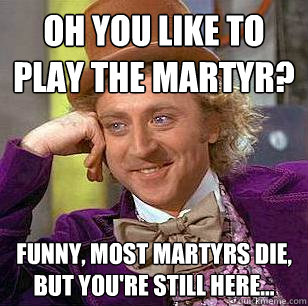As I collect the various Deleted Scenes to create a small eBook, I’m finding a few I’d like to recirculate.
And rewrite!
Here’s one from April, 2013, called Finding Serenity. This time around, I’m calling it:
Flexibility, patience, and a sense of humor
I’ve added photos to the remake too.
The words I heard most often during our two-year Peace Corps application process were, “You’ll need flexibility, patience, and a sense of humor.”
Within the successful Peace Corps volunteer abides flexibility, patience, and a sense of humor. And the greatest of these is a sense of humor.
It was also my greatest challenge.
I can do flexibility; I’m resilient to a fault.
I can do patience, too. As long as it doesn’t take too long.
But finding the humor in the world around me was impossible. At least in my third and fourth months.
I’d gone into the Peace Corps seriously determined that my two years there would be “worth all I’d (altruistically) given up.”
Seriously.

Fortunately, the martyr role does not suit me well.
I weighed each new challenge against “all I’d given up.” Not a pretty sight.
By October, my cultural sensitivity was dead and the hard wiring that culture embeds in us at an early age — cowboy-individualism in my American case, personal efficacy, empowerment — took over my life and colored everything I heard and saw. The result was chronic irritation and fatigue.
Feeing angry and tired is not a good way to try on a new way of being, never mind “to make friends for America.”
Corruption was an easy target.
We’d been told to expect corruption and, sure enough, from the policemen who arbitrarily stopped traffic to collect the small stash of paper tenge kept always in each glove compartment for such occasions, to the licensing bureaucrats who charged for a driver’s license — either $200 US or a sheep, depending on whether they were in the north of the country ($200) or the south (a sheep) — I saw it all around me.
New hires were expected to turn over their first month’s salary to whomever hired them.
Grades could be raised a full letter grade for a mere 5000 tenge. Even diplomas were bought.
Payoffs, bribery, kickbacks, and nepotism were rampant.
I reminded myself that Kazakhstan was a very young country, and America’s history — never mind its present — is also riddled with pockets of corruption.
In the America I idealized, though, corruption is exposed when found. Our heroes are those who fight crime, ignorance, poverty, and go on to get re-elected star in their own HBO documentary write their memoir.
Americas schools are in trouble, death by guns is the highest by far of any place in the world, and there is an ever-growing gap between rich and poor. But, while Americans disagree on the relative importance of these issues and how to address them, we still talk about them; we protest, demonstrate, argue, debate, write letters, or just complain. And we do so embraced by the luxury of the law. An imperfect luxury, to be sure, and one we often take for granted. Such was not the case in the Kazakhstan I lived in ten years ago.
In the Kazakhstan of 2004-2006 there were no protests, no demonstrations, no letters, and no complaints. I wanted my colleagues to be angry, to rail against the system just a little. But they couldn’t. It was their culture. It was in their hardwiring.
But back to my story.
Still, I was angry and I wanted my colleagues to be angry too. I wanted them to protest, or at least to complain. I wanted them to organize, to change the way their world worked.
I wanted them to behave like me.
But they didn’t.
I called it complacency, or co-dependency, or confluence depending upon the day. And it wasn’t at all funny.
It wasn’t just that they “weren’t me.” What I didn’t see was that their world was now working better for many of them than it had for generations. They were laughing at life more than I was at that point. And it was really annoying.
Everything was annoying.
Nothing was funny.
That would have been a red flag, if I’d only noticed.

Fortunately I eventually found my way out of this pit. (Those scenes survived the editors knife.)
Each of us, in our own way, whether we plan to or not, makes a difference every day. How much of a difference, how much of a legacy, how positive or negative the impact, is for others to determine.
History. Her story.
When we toss a pebble into a river, we don’t know how that one ripple, along with all the others, will change that river over time. So it was with me in Kazakhstan. I could only toss in my pebbles.
And let them go.
That’s when I got my laughter back.
Learning what I can control, what I have power over, is one of the marks of the mature mind. This has nothing to do with culture; I’ve come to see it as a universal.
One I take seriously. Maybe too seriously. I need to find something absurd; that always makes me laugh.
How about you? When do you laugh? What helps you?
Susan Jackson
Love it, a lot os wisdom there!
Janet Givens
Thanks, Susan. I’m so glad you stopped in.
Marian Beaman
Okay, I hear a Janet unleashed here, letting ‘er rip! I see you have fallen in love with the strike-through too, an interesting way to show ambivalence, (ambiguity?) I suppose.
One of my favorite lines: “either $200 US or a sheep” – You are probably serious, but that strikes me as funny. Keep tossing in your pebbles.
I usually see the humor in most things, but right now I don’t see any humor in all the track changes my writing coach has suggested in the margins of my latest submission this morning. Heavens! Tell me it’s worth it . . .
Janet Givens
It was indeed worth it, for me, Marian. If you trust your writing coach, then think of what a stronger book you’ll have when you are through. AND, there was a time I had to stop listening to any more feedback and just sit with the book and let it say what I wanted it to say. You’ll know when that time comes. Hang in there. Whatever you do, don’t quit.
marian beaman
I’m not a quitter, but I must say the deeper I get into this memoir-writing business, the more admiration I have for those who persevered – wow!
Merril Smith
Interesting post. I think you summed it up here:
“Learning what I can control, what I have power over, is one of the marks of the mature mind. This has nothing to do with culture; I’ve come to see it as a universal.”
I believe this is true, however, culture and the situation of one’s daily life obviously effects laughter. There are some situations in which I suspect it is difficult to find anything to laugh about it.
As for me, sometimes when I’m having a frustrating day, my cats will do something that makes me laugh–and sometimes that’s all it takes.:)
Janet Givens
That’s so true, Merril. I’ve written elsewhere about the importance of time (at times) in helping to find the humor. Sometimes, we just need distance, ether in time or space, to get a different perspective. Thanks for your contribution. Love having your voice here.
Ian Mathie
It’s interesting that you should come down on ‘what you can control’. I’ve never felt the need to control anything, particularly bits of myself and, as a result, can find something to laugh at in most situations. This, of course, sometimes lands me in hot water when others fail to see what I find funny or amusing. I can pull humour out of almost any disaster, but sometimes get told off for flippancy or insensitivity, if I’m rash enough to comment. It’s not really being insensitive, but as long as everyone involved survived more or less intact, whats to cry about? A bit of laughter can go a long way at times like that to defusing the tensions that lead to PTSD and continuing problems.
I’m glad you found your way out of that pit and are back to laughing, it’s much more your style, and if you’re one of those who need to feel they have some control of situations, at least now you’ve discovered a mechanism for achieving that.
A good thought provoking post. Thanks.
Janet Givens
Ian, I’m struck by your comment “I’ve never felt the need to control anything” and wonder if that’s a tribute to your African youth. I have a friend who’s an ALS survivor of more than 30 years now; she cannot control her legs, arms, hands, or (sometimes) her swallowing mechanism. Even her voice is different than it once was. She’s definitely had to learn to live without control over what most of us consider essential. And take for granted. I think we often don’t see how much we control until we’ve lost it. I think it’s something I’d love to have a conversation with you about. We should Skype once I’m home again (and can “control” how I spend my time.) That’s mid-March. Thank you, as always, for your Comment.
Ian Mathie
I’ll look forward to it, Janet. I love your blog because you always write about such interesting and thought provoking topics. They are always a pleasure to read.
Talk soon.
Janet Givens
Marian, FYI, I think of it as more of an obsession than any conscious decision on my part to persevere. I couldn’t help it. I couldn’t NOT keep at it. I think of it as my “glorious obsession.” Wasn’t there a movie with that name? Probably talking about something other than writing a memoir, though. 🙂
Ian Mathie
You’re not the only one who likes to keep things and preserve them. I’ve just done a tot up of all my published writing over the last fifteen years and found t comes to around half a million words. I also added up the totals of all the material that is unpublished or which got cut out during editing, and saved in case it was ever needed. That amounts to over three hundred thousand words. Now that I look at it and see the links I can see another book emerging.
Who ever said it wasn’t worth keeping and preserving things? I’m with you, I’m a hoarder!
Janet Givens
Hey Ian, That’s a lot of words. (Too bad the order we put them in is so important. 🙂
For me, having a folder to store my little dead darlings was a life saver (or book saver). I was therefore free to be much more cut-throat in my editing.
Another book sounds like a plan. I wish you well.
Ian Mathie
Oh I’m certainly a cut-throat when editing. I write everything in the first draft, in the full expectation that I may cut a third or more. As I edit, everything that does not relate directly and assist with the story I set out to tell, gets cut. So it was with Bride Price, where I cut 52,200 words and was left with a manuscript of 84,000. I hope I got it right.
But most of what got cut tells other stories about life in the forest, so with a little bit of adjustment and some new words, I hope there will be another memoir in it. Time will tell.